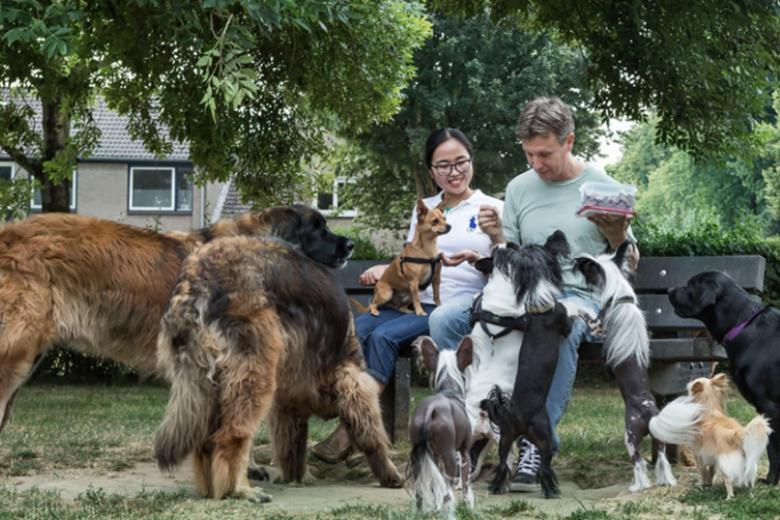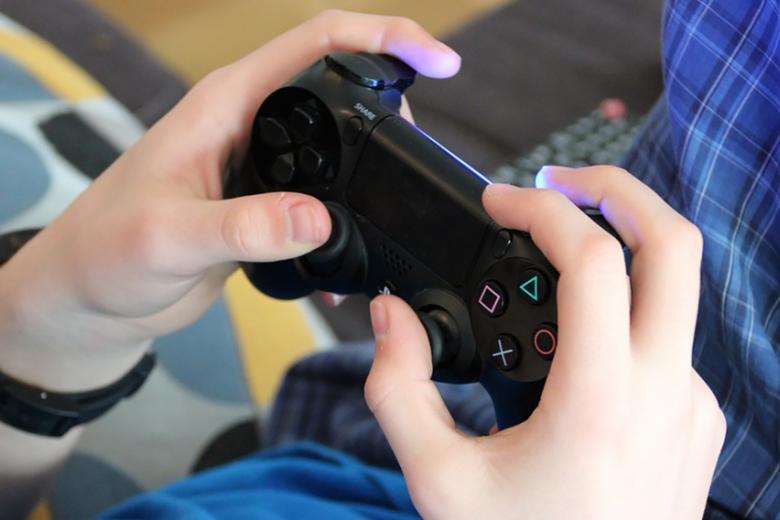Two UM research projects compete for the 2018 Klokhuis Science Award
Two research projects from Maastricht University have been nominated for this year’s Klokhuis Science Award. The first, led by Pim Martens (ICIS), is a study of emotions in animals; the second, led by Christine Resch (FPN), is an investigation into the use of games to help improve the thinking functions of children with brain injuries.
Of the 70 entries submitted by research universities, universities of applied sciences and university medical centres across the Netherlands, only 10 projects were nominated. The Klokhuis Science Award will be presented on Wednesday, 7 November, during the Junior Opening of the InScience scientific film festival in Nijmegen.
Emotions in animals
Pim Martens is Professor of Sustainable Human-Animal Relations at Maastricht University’s International Centre for Integrated Assessment and Sustainable Development (ICIS). He has been nominated for his research about animals’ emotions. Do dogs show feelings of shame? Do jealous cats exist? An increasing amount of scientific evidence is being found to support the existence of emotions in animals.
Most pet owners have long been convinced of that and recognise joy, pleasure and sadness in their house pets. They often assume that pets recognise their owners’ emotions and adjust their behaviour accordingly. For instance, a cat or dog may seem to comfort their sad owner. Emotions drive human behaviour. Is that also true for animals? Do they have the same emotions we do? And can we recognise them?
Gaming to improve memory
Every year, 19,000 children in the Netherlands suffer brain injuries. They can be caused by a hard blow to the head, encephalitis, oxygen deficiency or a tumour. Children with brain injuries often have difficulty concentrating, remembering things and controlling their behaviour. As a result, they often find it difficult to participate in school or activities in their free time.
Christine Resch is working with Petra Hurks and Caroline van Heugten (all from FPN) to investigate whether serious gaming is a good way to treat these complaints. This is the first large-scale study into serious gaming with strategy training for children with brain injuries. The researchers expect that playing games and giving tips and tricks about strategy not only improves thinking functions, but also positively contributes to daily functioning. Eventually, the training may also be used for other target groups, such as children with learning difficulties or ADHD.
Nominations
Het Klokhuis compiles the short list of nominations but the winner is chosen by children. Until 7 November, people can use a voting tool on Het Klokhuis’s website to vote for one of the 10 nominated research projects. The nominees came from Erasmus MC-Sophia Children’s Hospital, Wilhelmina Children’s Hospital (WKZ) at the University Medical Center Utrecht, Wageningen University & Research, University Medical Center Utrecht, Maastricht University (two nominees), HU University of Applied Sciences Utrecht - University Medical Center Utrecht, Inholland University of Applied Sciences and Design Academy Eindhoven.
Klokhuis Science Award
The goal of the award is to familiarise a broad, young public with scientific research in the Netherlands. There were 70 entries received from various Dutch research universities, universities of applied sciences and university medical centres. This will be the third time this award has been presented. With this science award, Het Klokhuis rewards scientific research that is interesting and relevant for primary school pupils. Het Klokhuis will dedicate a science episode to the research area of the winning research.
Click here to see a short overview of the nominated projects.
Also read
-
17 January 2026: Book Presentation - Maastricht Letterheads
We are pleased to invite you to the book presentation 'Maastricht Letterhead', presented by MACCH affiliated researchers Bart Zwegers and Joris Roosen.
-
From Venezuela to Greenland: How Trump’s actions are shaking European security
Studio Europa Maastricht spoke with Roberta Haar, Professor of Foreign Policy Analysis and Transatlantic Relations at Maastricht University, about the EU’s reaction to Trump’s actions and their potential consequences for European security.
-
Exposure to natural daylight improves metabolic health
Natural daylight has a positive effect on blood sugar levels in people with type 2 diabetes, according to an international study led by Maastricht University. This is the first study to show that natural daylight is better for metabolism than artificial light, the researchers claim.

